The Story Behind the Beauty Industry’s Most Eco-Friendly Packaging
A recyclable, compostable shampoo bottle is a tall order, but teamwork made it happen.
The Story Behind the Beauty Industry’s Most Eco-Friendly Packaging
A recyclable, compostable shampoo bottle is a tall order, but teamwork made it happen.
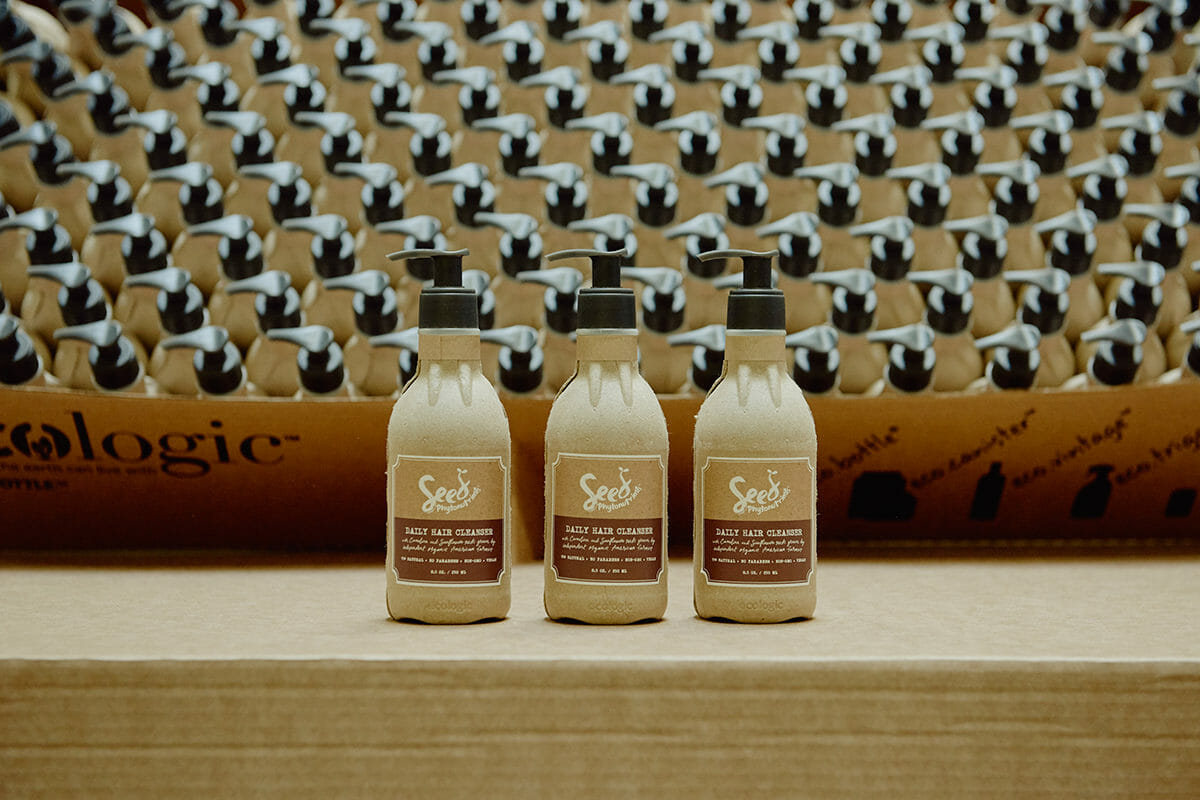
For Corbett, the wake-up call came in 2008, when her daughters’ elementary school in Berkeley, California, adopted a zero-waste policy (no Ziploc bags, only reusable water bottles). Suddenly, the mom of two started questioning the sustainability of every item in her family’s household, from milk cartons to cleaning supplies. “The innovation on the product side was there,” Corbett recalls. “Yet in packaging, it was the same old thing.”
Inspired by the then-new iPhone’s curved fiber nesting tray and the Canadian milk pouches of her youth, Corbett envisioned an environmentally-friendly bottle with an outer shell of recycled paper concealing a thin, plastic, recycled liner inside. The concept could, she believed, reduce carbon emissions by more than a third. Turning it into a full-fledged company, however, proved an uphill climb. “Potential investors thought I was just some chick from Berkeley who didn’t know what she was talking about,” Corbett says. Until, that is, she ran a successful test pilot with a local dairy at an Oakland Whole Foods.
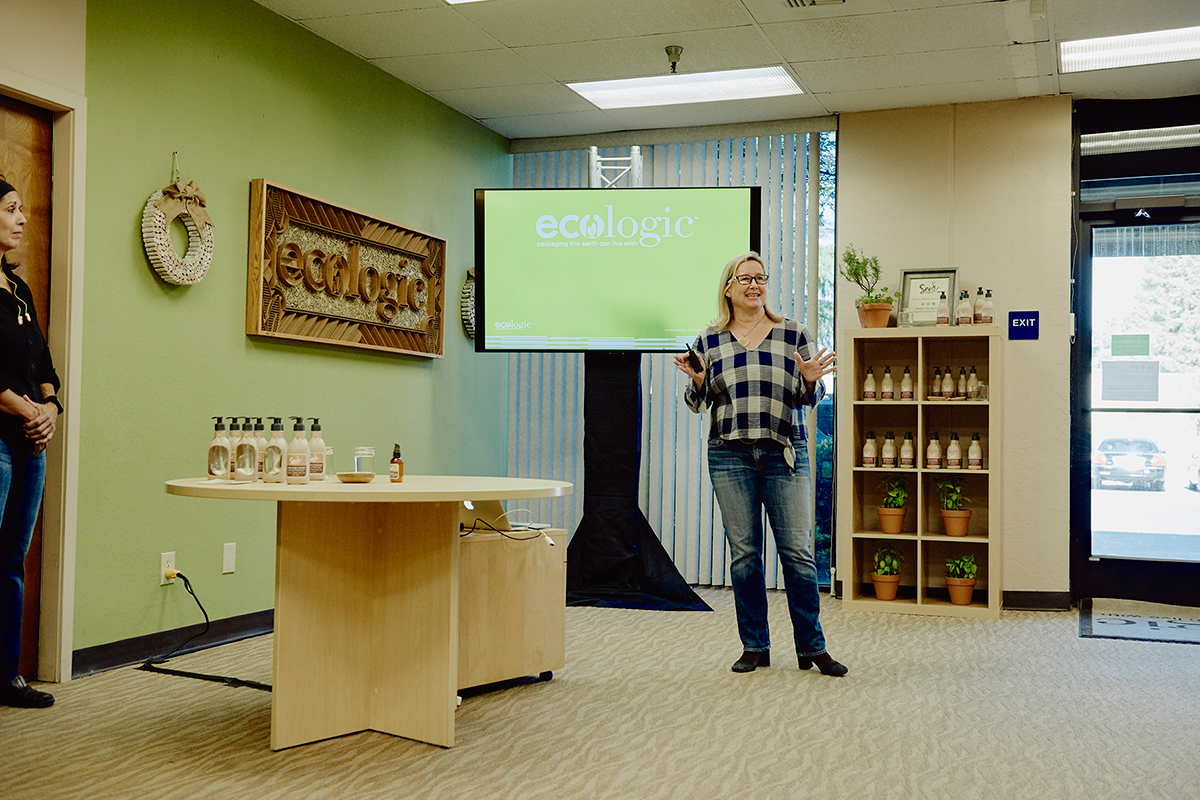
By 2013, Corbett’s enterprise, Ecologic, claimed a bustling a factory in Manteca, California, and a client list that included Seventh Generation and Nestlé. Business appeared to be booming. In truth? “We struggled to find the right technology, equipment, and people,” she admits, explaining that Ecologic relied too heavily on manual labor and found it impossible to scale. So focused was the company on fixing the manufacturing process that they began ignoring calls and emails from potential clients – among them, Scott Schienvar, head of supply chain operations at L’Oreal.
At the time, in mid-2016, Schienvar had been tasked with tracking down the maker of Seventh Generation’s packaging for a new purist brand, Seed Phytonutrients, that L’Oreal was incubating. He hit a brick wall at Ecologic. “They were ignoring us,” he remembers. “So I totally stalked them.”
Schienvar isn’t exaggerating: When his emails to Corbett went unanswered, he contacted her on – where else? – Facebook. “I got a Facebook message from Scott going, ‘Please call,'” Corbett says. “Then 10 minutes later, I got another message. I thought, ‘I should call this guy back, because at this point, I’m being rude.” Though she planned to let him down politely, Schienvar proved persistent.
“We’re coming to Manteca to see you,” he said.
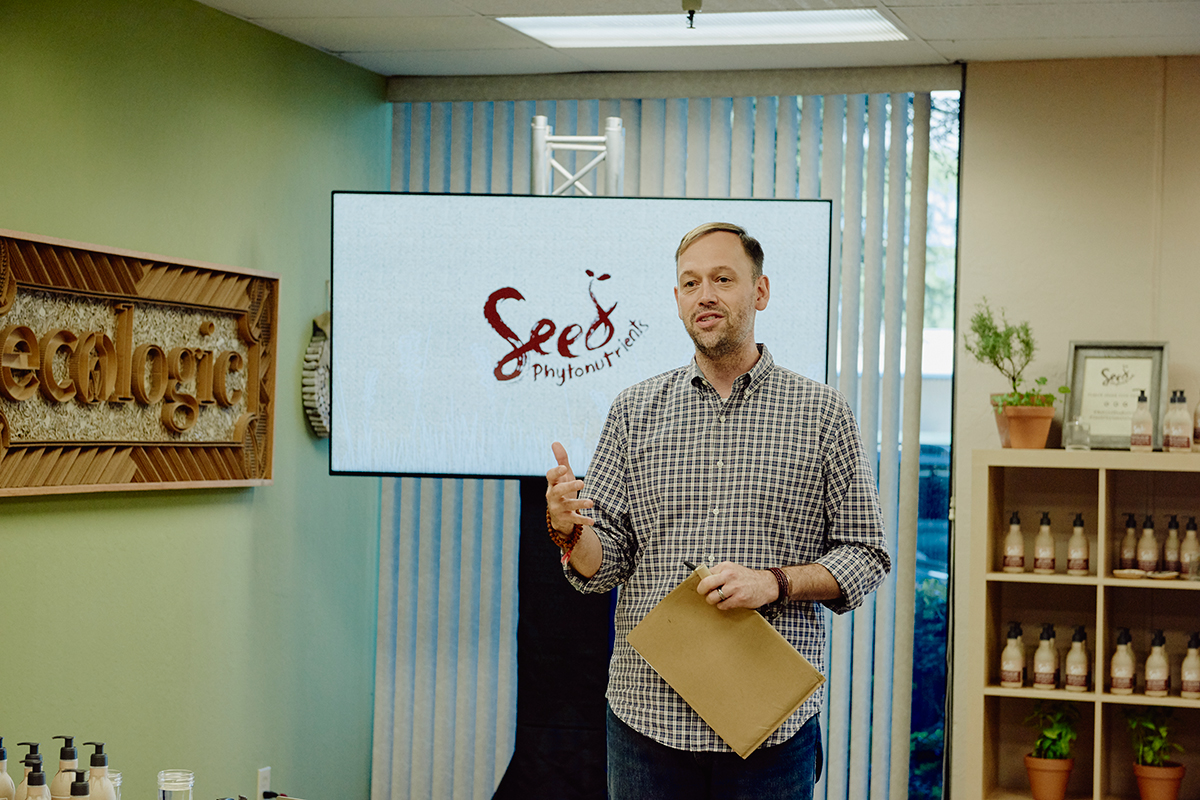
Within days, he and Seed’s founder, Shane Wolf, were sitting down in California with Corbett and Greg Rodrigues, Ecologic’s new CEO, whose experience in manufacturing has helped transform the company. Seed’s message immediately resonated and they believed – “Shane’s vision is authentic,” Corbett said – but could Ecologic handle the volume required? Even if they could, Shane wanted things they couldn’t yet deliver: The packaging had to be recyclable and compostable – that meant glue was out. It also had to withstand a hot shower environment – when an uncoated paper container gets wet, it becomes soggy and falls apart, especially when shampoo suds further weaken the structure. And to reduce waste, the plastic pouch needed to be thinner than any other on the market.
Wolf remembers the meeting well. “They needed a big influx to help them move their technology from something that was labor-intensive to something sustainable from a business perspective.” His proposal: He’d provide funding to develop a new packaging concept if Ecologic agreed to meet their ecological requests.
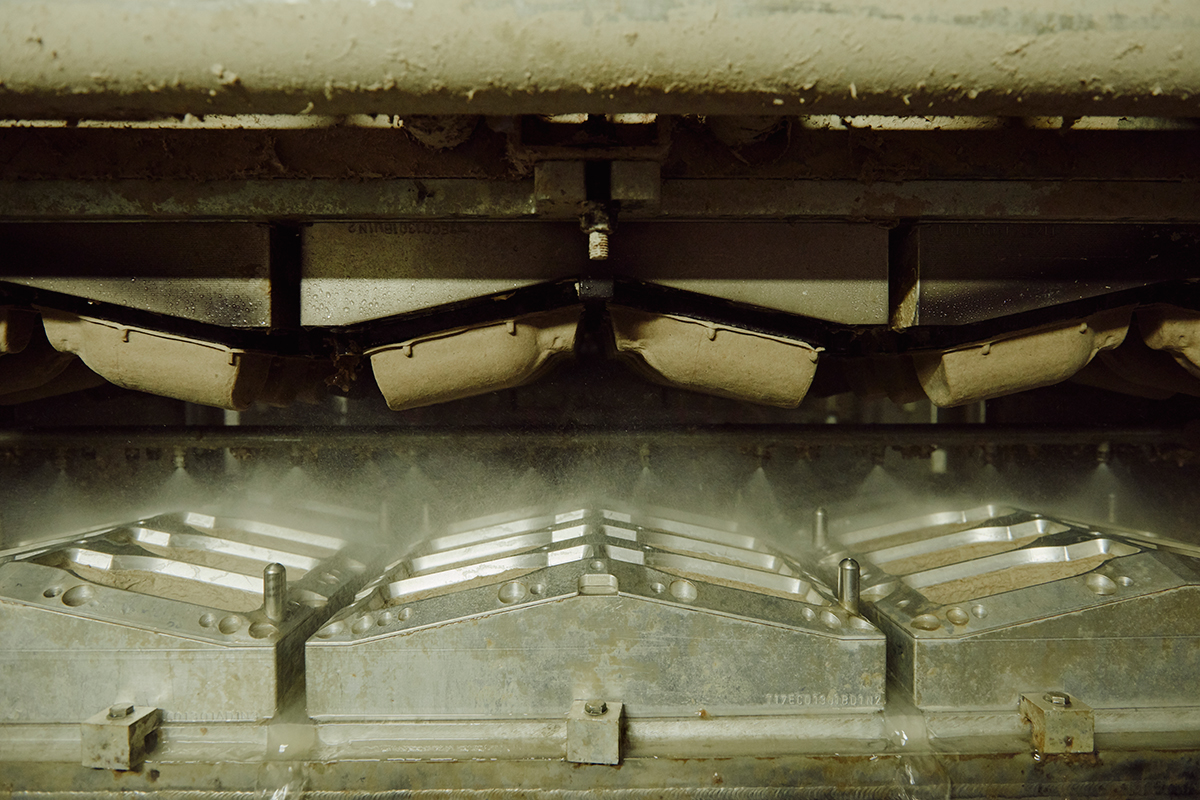
Corbett was game. “We approached it one step at a time,” she says. By adding a combination of earth minerals, they created a water-resistant paper bottle that could stand up to the pressures of a shower. Instead of glue, the bottle uses a clever interlocking design that’s just as sturdy. The interior liner (made with food-grade recycled plastic) is 60 percent thinner than typical plastic bottles. A unique pump evacuates up to 98 percent of the available shampoo – a consumer-pleasing innovation that also lightens the carbon footprint. What’s more, the containers can be shipped nested, making them far more efficient to transport than traditional packaging.
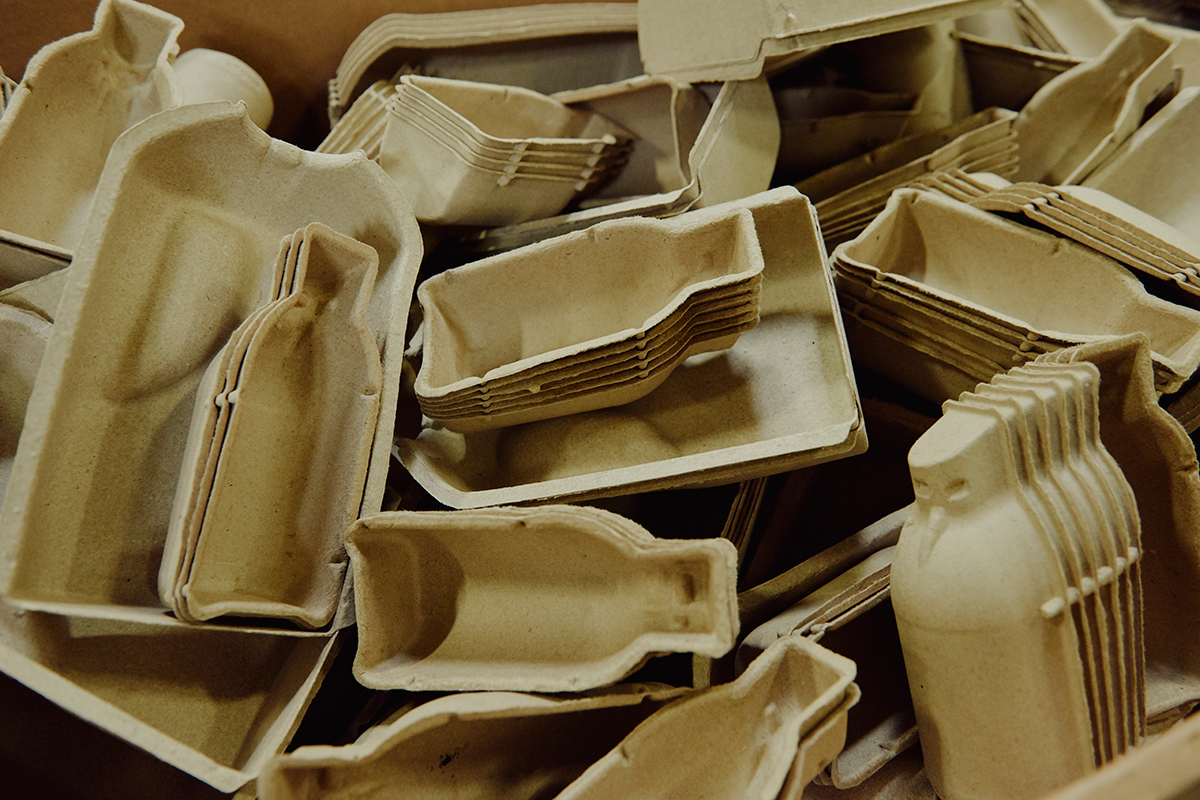
The resulting bottle just may be the most ecologically sound in the world of beauty. “It’s totally new – nobody has done this in our industry,” Schienvar says. “It’s stylish, it’s clean-looking, it’s a really strong bottle.” Each one comes with a hidden gift inside, too: a packet of organic seeds from the Hudson Valley Seed Company, a farm-based heirloom seed producer in upstate New York, meant to encourage consumers to grow their own plants at home and participate in the cycle.
As proud as the Seed and Ecologic teams are of their accomplishment, this is just the beginning. “We use post-consumer paper now,” Schienvar says. “But soon, we’ll be making these containers from our own waste paper and cardboard boxes.” That will then create a closed loop, which will bring Seed one step closer to the ideal vision of zero waste.
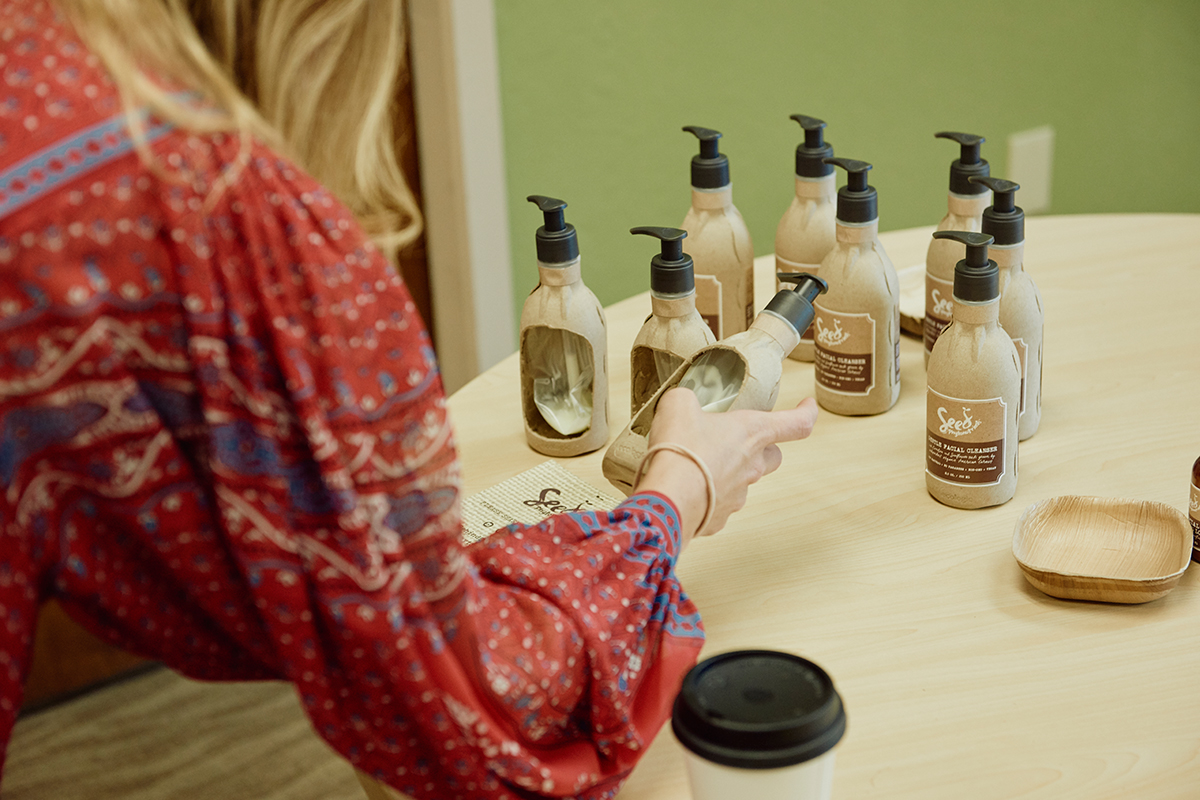
Ecologic is back on its feet. Thanks to the Seed Phytonutrients partnership, the company has proven its new technology and has the machinery to produce at scale. For Corbett, securing the future of the business has been hugely positive, but pushing the boundaries of sustainability is even more meaningful. “When I started the company, if you’d asked me whether my bottles would ever go in the shower, I’d have given you a big fat no,” she says. “But I made a big mental leap, because this group came together with common values around preservation and collaboration. I’m starting to see this come alive – and it is beautiful.”
Follow us
This work is licensed under a Creative Commons Attribution-NoDerivatives 4.0 International License.
Want to republish a Modern Farmer story?
We are happy for Modern Farmer stories to be shared, and encourage you to republish our articles for your audience. When doing so, we ask that you follow these guidelines:
Please credit us and our writers
For the author byline, please use “Author Name, Modern Farmer.” At the top of our stories, if on the web, please include this text and link: “This story was originally published by Modern Farmer.”
Please make sure to include a link back to either our home page or the article URL.
At the bottom of the story, please include the following text:
“Modern Farmer is a nonprofit initiative dedicated to raising awareness and catalyzing action at the intersection of food, agriculture, and society. Read more at <link>Modern Farmer</link>.”
Use our widget
We’d like to be able to track our stories, so we ask that if you republish our content, you do so using our widget (located on the left hand side of the article). The HTML code has a built-in tracker that tells us the data and domain where the story was published, as well as view counts.
Check the image requirements
It’s your responsibility to confirm you're licensed to republish images in our articles. Some images, such as those from commercial providers, don't allow their images to be republished without permission or payment. Copyright terms are generally listed in the image caption and attribution. You are welcome to omit our images or substitute with your own. Charts and interactive graphics follow the same rules.
Don’t change too much. Or, ask us first.
Articles must be republished in their entirety. It’s okay to change references to time (“today” to “yesterday”) or location (“Iowa City, IA” to “here”). But please keep everything else the same.
If you feel strongly that a more material edit needs to be made, get in touch with us at [email protected]. We’re happy to discuss it with the original author, but we must have prior approval for changes before publication.
Special cases
Extracts. You may run the first few lines or paragraphs of the article and then say: “Read the full article at Modern Farmer” with a link back to the original article.
Quotes. You may quote authors provided you include a link back to the article URL.
Translations. These require writer approval. To inquire about translation of a Modern Farmer article, contact us at [email protected]
Signed consent / copyright release forms. These are not required, provided you are following these guidelines.
Print. Articles can be republished in print under these same rules, with the exception that you do not need to include the links.
Tag us
When sharing the story on social media, please tag us using the following: - Twitter (@ModFarm) - Facebook (@ModernFarmerMedia) - Instagram (@modfarm)
Use our content respectfully
Modern Farmer is a nonprofit and as such we share our content for free and in good faith in order to reach new audiences. Respectfully,
No selling ads against our stories. It’s okay to put our stories on pages with ads.
Don’t republish our material wholesale, or automatically; you need to select stories to be republished individually.
You have no rights to sell, license, syndicate, or otherwise represent yourself as the authorized owner of our material to any third parties. This means that you cannot actively publish or submit our work for syndication to third party platforms or apps like Apple News or Google News. We understand that publishers cannot fully control when certain third parties automatically summarize or crawl content from publishers’ own sites.
Keep in touch
We want to hear from you if you love Modern Farmer content, have a collaboration idea, or anything else to share. As a nonprofit outlet, we work in service of our community and are always open to comments, feedback, and ideas. Contact us at [email protected].by Annie Tomlin, Modern Farmer
January 15, 2018
Modern Farmer Weekly
Solutions Hub
Innovations, ideas and inspiration. Actionable solutions for a resilient food system.
ExploreExplore other topics
Share With Us
We want to hear from Modern Farmer readers who have thoughtful commentary, actionable solutions, or helpful ideas to share.
SubmitNecessary cookies are absolutely essential for the website to function properly. This category only includes cookies that ensures basic functionalities and security features of the website. These cookies do not store any personal information.
Any cookies that may not be particularly necessary for the website to function and are used specifically to collect user personal data via analytics, ads, other embedded contents are termed as non-necessary cookies.